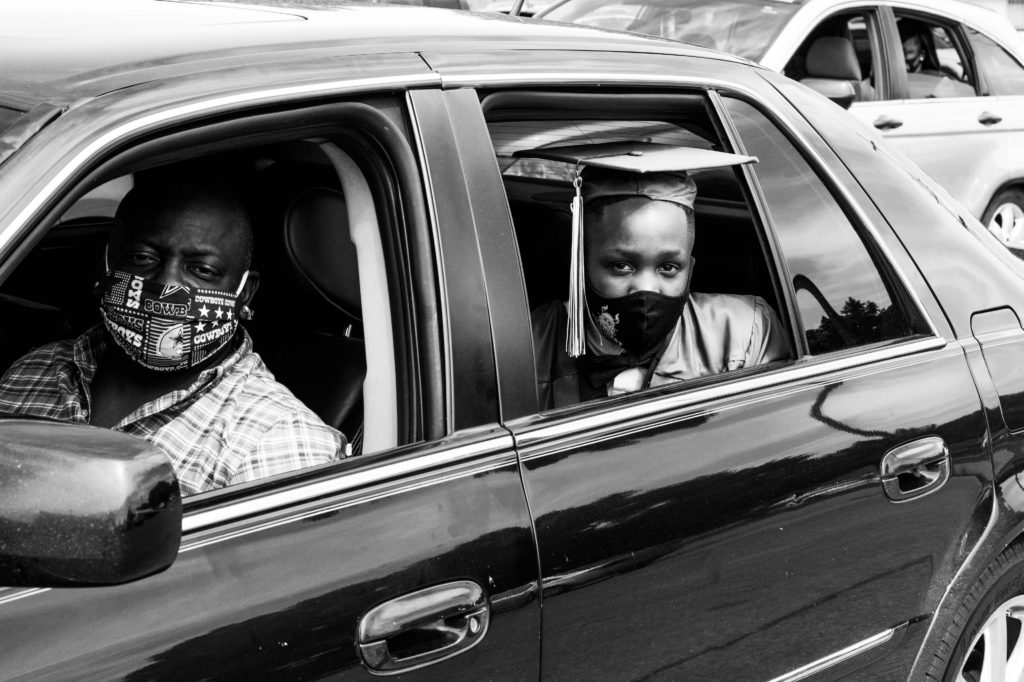Relationships to the Rescue: How our Common Humanity is Vital for Racial Justice


By Chad Soleo,
CEO Green Dot Public Schools
Last week, I had the privilege of helping my wife memorialize her grandmother, who had lived with our family for the past eight years. I have been reflecting on the significance of my own life and the purpose with which I approach leading in my home and leading in my workplace. Grandma’s legacy was so evidently present in the family she established and deeply present in the relationships she invested in — both personally and professionally through her life from the Great Depression right into 2021.
Our legacies — personal and organizational — are also embedded in relationships with one another, especially at this moment in time. This is a tough moment for our country — disproportionately so for those for whom elements of personal identity, not the least of which is racial identity, are touched by ongoing events.
Increasing acts of violence against members of the Asian American and Pacific Islander communities are alarming. The apparent targeting of Sikh individuals at the FedEx warehouse shooting in Indiana is an outrage. The video of a woman on a New York City sidewalk being beaten while others turned away and a similar video of a man being pummeled on the subway with no bystanders standing up for him weighs heavy on my heart. The police killing of Daunte Wright is fresh in my mind. And with news of a guilty verdict now in the Derek Chauvin trial, I hope justice is at hand. I know hope alone doesn’t do the job. Changing hearts and minds and practices in pursuit of a more perfect and just nation means asking myself and those around me to consider what our own agency looks like.
As a lifelong learner and educator, I seek out teachable moments — conversations — for and with my children in these times through the lens of each of these powerful current events. We have to create space for purposeful reflection on what’s at stake. This is how values are shaped and the future — with hope, a better one — is built. Our teachers do the same with our Green Dot students across our network of 24 Title I public middle and high schools.
I don’t have to remind anyone how important the work of educators and schools is in supporting the social-emotional development of a young person. And, how we relate to one another in our adult workplaces — virtual or in-person — matters immensely too. We must take the time to check in with one another. Listen. Shape each others’ perspectives through sharing. And don’t forget to take care of yourself, too.
Conversations around how to further diversity, equity and inclusion in our society’s institutions and our daily lives feel especially poignant right now. Over the last month, Green Dot’s DEI Working Group has been active. Personally, hearing directly from my colleagues about the way in which racial justice and inclusion has impacted workplaces, classrooms, and each of us is a privilege, and I have gratitude for the courage it takes to speak up for what you believe in.
The working group is currently exploring a plan to build our capacity for assessing our organization and planning purposefully through a DEI lens. I know many organizations and companies across the country are doing the same. Helping build a more just and equitable future is at the heart of what Green Dot is doing every day.
We have all read the stories, and likely know several students ourselves, whose learning loss has been exacerbated this year. According to a McKinsey & Company study, the current generation of students (~ages 3–22) is suffering from significant learning loss that is even more pronounced amongst Black and Hispanic students, students with IEPs, and students who are homeless or in the foster care system [SOURCE]. Grades are rapidly declining, chronic absenteeism is increasing (plus thousands of students across the country haven’t even attended online school since March 2020 due to lack of internet access), and students’ ability to learn and process material is withering. Further, EdWeek posits that in addition to learning loss, current students are also at risk of their long-term job and financial prospects [SOURCE].
“For all young adults, the pandemic has cut employment prospects to lower levels than even the Great Recession. Yet women and young people of color have taken a bigger economic hit.” -EdWeek
Summer school, academic tutoring and mentoring, and psychological counseling are all remediation tactics that Green Dot — as well as hundreds of districts around the country — are offering in an effort to reverse the effects of the pandemic. Growing student academic proficiency has never been greater.
We ask you to consider standing with us, writing to your local electeds, and talking to your friends about the importance of increasing funding for public schools across America so that all students — regardless of background — have the opportunity to succeed in college, leadership, and life.
